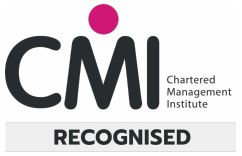Our APM programme is designed to support the growth of emerging and existing managers within General Practice. Whether you're nurturing new talent or strengthening your current leadership team, this programme delivers the knowledge, confidence, and practical tools needed to thrive in today’s complex primary care environment.
CMI Accreditation: A Mark of Excellence
All those taking our courses can be assured that the Chartered Management Institute's Professional Standards underpins all of our Accredited solutions, meaning they adhere to best practice in management & leadership.
Designed for Organisational Impact
This programme is ideal for:
- Aspiring Practice Managers preparing for leadership roles
- Current Managers seeking to refresh and deepen their understanding of Primary Care processes
- Organisations committed to continuous improvement and workforce development
Through a blend of reflective learning, theoretical input, and real-world application, participants gain insights that translate directly into improved practice performance.



